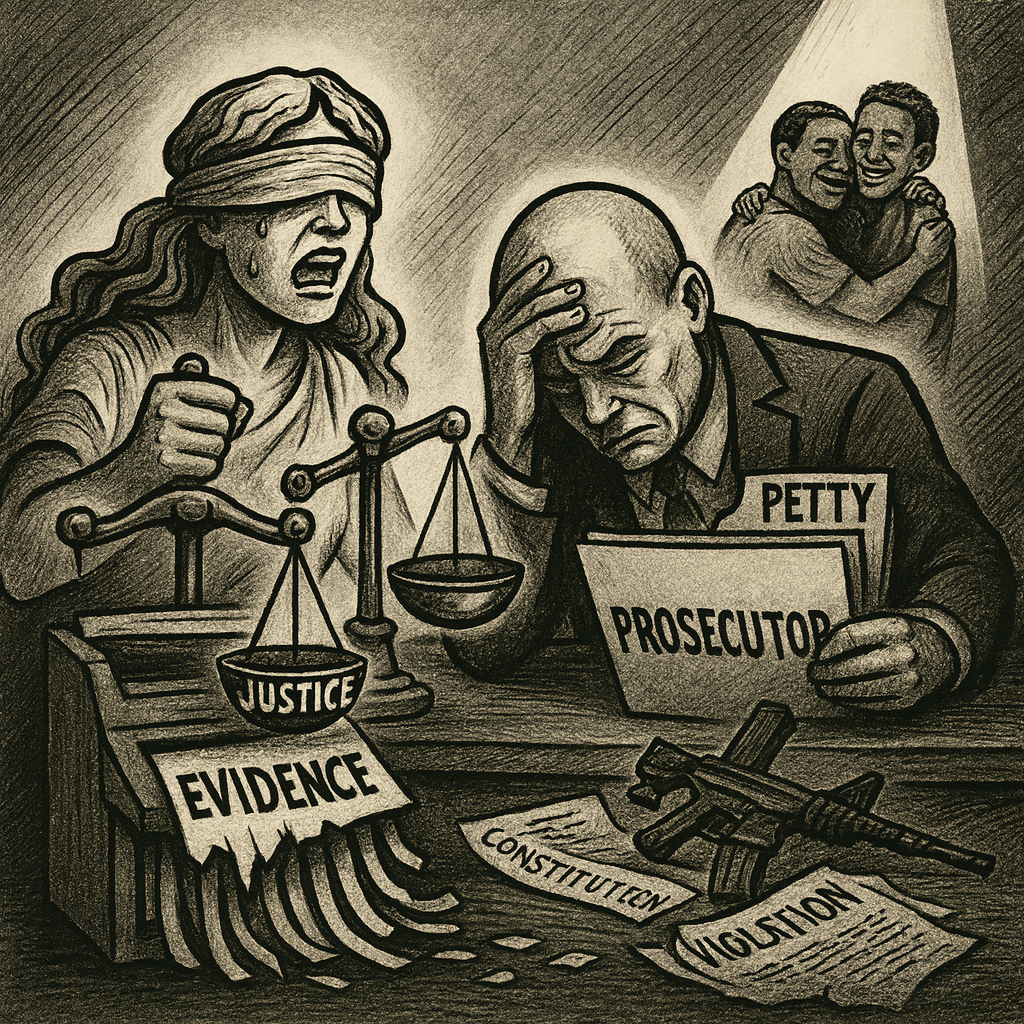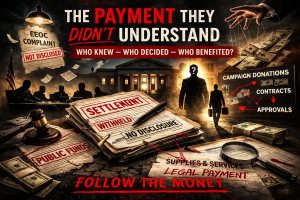All Charges Dropped in Cleveland Activist Trial: Case Raises Alarming Questions About Police and Prosecutorial Conduct

Aug 18, 2025
By Aaron Knapp Lorain Politics Unplugged CLEVELAND, OH — August 2025
In a dramatic courtroom decision last week, a Cuyahoga County jury acquitted all three defendants in a controversial criminal case involving community activists from New Era Cleveland. The verdict comes after months of scrutiny over the arrests of Antoine Tolbert, Austreeia Everson, and Rameer Askew—activists who were accused of felony-level offenses including extortion, aggravated robbery, and kidnapping.
After a five-week trial, the jury returned not guilty verdicts on all fifteen charges, signaling a decisive rejection of the prosecution’s case and casting a spotlight on the Cleveland Police Department and Cuyahoga County Prosecutor’s Office.
Community Advocacy or Criminal Conduct?
At the center of the case was Antoine Tolbert, a well-known community leader who has received over $200,000 in public and private grants for violence prevention efforts. Tolbert and members of New Era Cleveland had been organizing boycotts of local gas stations in response to repeated incidents of violence and safety concerns in predominantly Black neighborhoods.
In August 2024, Tolbert was arrested and charged with extortion just six days after appearing in a Fox 8 news segment that featured allegations made by Rubin Swift, who claimed to be the owner of one of the boycotted gas stations. Swift—who has a history of felony convictions, including a reversed rape conviction—told the station that Tolbert had led a group of armed men to blockade the gas station for hours.
But according to surveillance footage and witness accounts presented at trial, those allegations quickly fell apart.
Missing Footage and Contradictory Evidence
The gas station where the alleged extortion occurred had an advanced surveillance system capable of storing video for 90 days. However, only a 30-minute clip was produced by the prosecution—one that showed no weapons, no threats, and no interference with business operations. Customers came and went freely. Conversations appeared non-confrontational.
Requests for the full video footage were met with claims that the rest of the recordings had not been preserved. Defense attorneys argued that this amounted to the destruction of exculpatory evidence. Despite this, a judge allowed the case to proceed.
Additional Charges Against Co-Defendants Raise Eyebrows
In the months following Tolbert’s arrest, charges were also filed against two others connected to New Era Cleveland:
- Austreeia Everson, Tolbert’s partner and the organization’s president, was charged with extortion and witness intimidation. Prosecutors cited her participation in a recorded meeting—attended by two lawyers and a university professor—as an act of criminal pressure, despite evidence showing it was a peaceful effort to resolve the boycott.
- Rameer Askew, a 19-year-old honor student and former football captain, faced serious charges of aggravated robbery and kidnapping. These stemmed from an incident in which Tolbert and Askew confronted a marijuana dealer who had attempted to sell drugs to a 13-year-old involved in their youth program. They called 911 and submitted evidence to police. Six months later, those same facts were used to charge Askew with violent felonies.
At trial, the prosecution’s key witness against Askew refused to testify, ultimately pleading the Fifth. He told the court he wanted “no part” in the case.
Defense Claims Retaliation by Police and Prosecutors
Throughout the trial, defense attorneys presented evidence suggesting that the arrests were not only unfounded but retaliatory.
- Body camera footage showed Detective Timothy Hannon, the lead investigator, celebrating Tolbert’s arrest and referencing his prior civil suit against the department. Hannon also stated that his “main goal” was to prevent Tolbert from ever legally owning a firearm again.
- Other officers were recorded telling gas-station owners that no laws were being broken during the protests and even thanked the group for intervening to protect children.
- A separate incident caught on body cam showed one gas-station owner firing a gun into the air, then blaming New Era members. Defense attorneys suggested this could have incited a violent police response had the false accusation not been discovered.
Prosecution Moves to Disqualify Defense Team
In an unusual move, prosecutors attempted to disqualify the entire defense legal team just weeks before trial. They alleged that Maryam Assar, a newly licensed attorney, was a potential witness or co-conspirator simply for attending the same meeting cited in Everson’s charges. The judge rejected the motion.
Prosecutors also filed a motion to ban any references to the First or Second Amendment during trial, claiming such arguments might encourage “jury nullification.” That motion was also denied.
Acquittal and Community Response
After five weeks of testimony and three days of deliberation, the jury acquitted all three defendants of every charge. Jurors reportedly embraced the defendants after the verdict. One juror said she hoped to join the organization.
The case has reignited debates over the limits of prosecutorial discretion and the potential misuse of the criminal justice system to punish activists. Legal experts say the destruction of evidence, suspect witness credibility, and inflammatory public statements by investigators may open the door to civil rights lawsuits in the near future.
What Comes Next
Attorneys for the acquitted individuals say they plan to pursue civil litigation, including claims of malicious prosecution, defamation, and constitutional violations.
“This was not just a wrongful prosecution,” one defense lawyer stated. “It was a blueprint for how the state can try to silence and dismantle effective community organizations.”
The case is also fueling calls for systemic reforms, including the abolition of absolute prosecutorial immunity, limits on qualified immunity for police, and legislative measures to strengthen protections for community advocacy under the First Amendment.
Bottom Line
The outcome of the case is a clear repudiation of the charges brought against Tolbert, Everson, and Askew. But for many, the verdict does not mark the end of the story—it marks the beginning of a broader conversation about accountability, police power, and the criminalization of community action.




